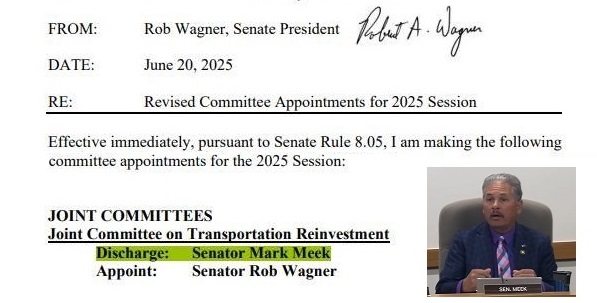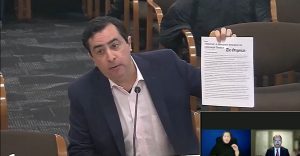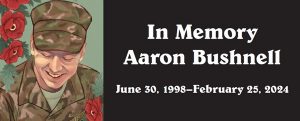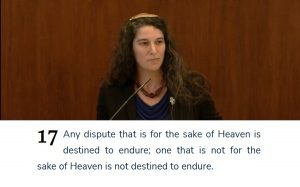BikePortland.org follows ‘the complete political breakdown’ around the transportation bill
11 min read
Presenter: The website BikePortland.org has been looking back at the just-concluded legislative session. Jonathan Maus writes that he is fascinated with ‘the complete political breakdown‘ around the transportation package, House Bill 2025.
[00:00:13] As a revenue bill, it required approval by three-fifths vote, which meant every single one of the 18 Democrats in the Senate. But one Democrat, Sen. Mark Meek, said no.
[00:00:23] The story at BikePortland.com explains that Sen. Meek lives in a competitive ‘purple’ district. It then quotes extensively from the committee hearings to show how he went from being a potential supporter, to an emphatic ‘No’ vote.
[00:00:37] We’ll do the same, using audio from the original committee recordings, starting with the 10 a.m. meeting June 9, where the bill was introduced. Republican Sen. Bruce Starr:
[00:00:47] Sen. Bruce Starr: ‘Disappointed’ is maybe the right word that we’re here today without a bipartisan bill that has strong support. And instead, we’re faced with a bill that, at least this Republican, and I won’t speak for my colleagues, can’t support.
[00:01:08] So to that end, I’m going to be a ‘No’ on the motion to adopt this as a committee bill. I recognize you probably don’t need the minority to do that anyway, but I want to say that, at least for this Republican, the door remains open for the opportunity to sit at that table. We’ve got 20 days and I’m hopeful that at the end of the day we serve Oregonians well by by addressing the transportation needs that are facing our state. Thank you.
[00:01:43] Rep. Susan McLain: Thank you, senator. Are there any other comments? So we’ve got Sen. Meek first.
[00:01:47] Sen. Mark Meek (June 9, 2025, 10 a.m.): Thank you, co-Chair McLain. Well, I’m thankful to hear the feedback from Sen. Starr and other members. Not happy with what the message is, I’m just happy to hear the feedback. I’ve been familiar of and aware that a lot of conversations have been happening. And I appreciate your work on that level and any other collaborators that have worked on this.
[00:02:16] I know a lot of work has gone into this. And one statement I’ll make is that it’d be amazing and it’d be a miracle If the bill we introduced today was perfect and that we were all able to vote ‘Yes’ on it. I will vote and support the introduction of this bill, knowing that a lot of work has to be done still.
[00:02:37] We have a short period of time to do it, but I think it’s going to be very important. I would call this the foundation, the starting point. Let’s have some really good conversations and let’s keep our options open because I think Oregonians are looking for us to really do or pass an appropriate transportation package that will both be responsible, palatable, and effective with our transportation system right now on all levels.
[00:03:14] And so I’m just hoping that we all keep an open mind and we’re all able to really listen to each other and collaborate and come to what I would say is a proper solution for all of us.
[00:03:26] Presenter: At a 5 p.m. hearing later June 9, Sen. Mark Meek:
[00:03:30] Sen. Mark Meek (June 9, 2025, 5 p.m.): I, like Vice Chair Boshart Davis, I just want to make sure because you have listed in here also that the Interstate 205 freeway widening project. Colleagues, I want to make sure that it’s clearly identified is what the scope of the project would be and that we have a clear understanding of that because it could end up being something way different than I would expect at this point.
[00:03:55] Presenter: Later in the meeting, he also asked the Office of Legislative Counsel for specifics about the funding mechanisms.
[00:04:01] Sen. Mark Meek (June 9, 2025, 5 p.m.): I think that it was House Bill 3055, and want to know how that funding mechanism, which is currently paying for the Abernathy Bridge and that funding, how this new policy will change that funding mechanism, because I’m looking at Section 110, then 111, which I was hoping to maybe you can clarify, Section 110 is the new fuels tax increase, I’m guessing. And then Section 111 is, this says, the privilege tax. But they’re distributed in different priorities.
[00:04:36] Heidi Elliott (Office of Legislative Counsel): Yeah, so Section 110 is actually amended four times.
[00:04:42] Sen. Mark Meek (June 9, 2025, 5 p.m.): I’m looking at the bill, that’s all right.
[00:04:44] Heidi Elliott (Office of Legislative Counsel): So if you look at the bill, and then you look at Section 111, it looks at the top in light-based, Section 110 is amended to read, so it’s the same section, it’s just in the future. So in 2027, as we add the new revenues, and then the distribution and the priorities change. As we add in Great Streets and Safe Routes and the wildlife fund, the projects stay the same, but they come then after those things and then it’s amended again in Section 113 as time goes on and we add in because at that point it’s 2028, the heavy vehicle taxes, the rate model taxes, the flat fees and the road assessment fees have started. So that also gets added to the pot and then those as we discussed are amended again in 2030, 2032, and 2034 so you have to keep amending (Section) 110 to keep adding all those increases to account.
[00:05:47] Sen. Mark Meek (June 9, 2025, 5 p.m.): Follow-up: All I want to do is ask that Legislative Revenue give us some charts of how that all looks as time progresses and we can track each funding mechanism and track those dollars to see just get a really true real life scenario of how that’s going to operate. Thank you.
[00:06:07] Presenter: Later in the informational meeting on House Bill 2025, Sen. Mark Meek:
[00:06:12] Sen. Mark Meek (June 9, 2025, 5 p.m.): I think a question I have is: How much revenue is this bill generating, in general? Thank you.
[00:06:19] Kathryn Jones (Legislative Transportation Project Manager): Co-Chairs and Sen. Meek, so those numbers with HCAS (Highway Cost Allocation Study) balance are currently being calculated and will be ready for you, I believe Mazen (Malik, LRO) said Thursday? That’s why we haven’t put out the chart.
[00:06:31] Sen. Mark Meek (June 9, 2025, 5 p.m.): Yeah, okay, but thank you. Then follow-up, just follow-up, okay? (Oh yes, please.) Going through the calculations and the distributions and the projects, Section 110 funding, that is all going to pay for projects, because when we look at Section 119 that talks about bonded funding, is this, what percentage of the funding coming in based on the current policy presented would be going to pay for our debt, to service debt?
[00:07:06] Kathryn Jones (Legislative Transportation Project Manager): Co-Chairs and Sen. Meek, I think it depends on how ODOT wants to use that $250 million a biennium placed into the anchor project fund if they need to bond against that and to pay the debt service they can do that or if they want to pay for cash for these projects they can do that. And the OTC, excuse me, to decide for that.
[00:07:26] Sen. Mark Meek (June 9, 2025, 5 p.m.): Follow-up then, final follow-up, well, I think that hopefully that the legislature would have some type of say in how they prioritize that. So thank you.
[00:07:34] Presenter: The next week, at the informational session June 17, Sen. Mark Meek:
[00:07:39] Sen. Mark Meek (June 17, 2025): At the risk of being critical, I’m going to be critical. I don’t see how anybody can expect us to vote on this tomorrow or the day after, based on everything that was presented, and the time we have to digest this, and even to amend it or correct it and make sure it is accomplishing what we are looking at. I am frustrated to the highest level, and you can expect a ‘No’ vote out of me right now.
[00:08:07] Presenter: With a reference to the Legislative Revenue Office (LRO), and the Legislative Fiscal Office (LFO), Sen. Chris Gorsek:
[00:08:15] Sen. Chris Gorsek (June 17, 2025): Let me just say, Sen. Meek, you know that in times like this, there are going to be problems getting information. There are going to be problems getting things from LRO and LFO. This is not an unusual circumstance, and things are still coming together. That’s not our choice, but it is what’s been happening. And so we’ve been delayed, and we have presented what we have at the present time, but I hope you won’t rush to judgment on this and that you will give it a chance because there’s still a lot more information to come out.
[00:08:57] Sen. Mark Meek (June 17, 2025): Thank you, co-Chair Gorsek. Can you understand the exercise that we’re going through. We’re scheduled for a informational meeting on this and we barely get it an hour ago or so. We are all very busy at this time and then we look for numbers—we’re supposed to be digesting numbers—we asked for numbers last week, we finally got them on Thursday, or late early Friday maybe. And so co-Chair Gorsek, McLain, I don’t blame you. but we started this exercise June 9. And trying to rush this, not a good practice, not a good exercise at this time.
[00:09:44] Sen. Chris Gorsek (June 17, 2025): And let me say, I totally understand what you’re saying. We too have been very frustrated with how slow the information has been coming to us. And I don’t blame you a bit for being frustrated. We’re frustrated as well. But I hear what you’re saying. I do.
[00:10:03] Presenter: On June 20, Sen. Meek learned that he was removed from the committee, while on the way to the meeting. He sat in and just before the final committee approval of House Bill 2025, he spoke.
[00:10:14] Sen. Mark Meek (June 20, 2025): Thank you, co-Chair McLain and thank you, co-Chair Gorsek and members of the committee. Many of you may have witnessed today that I haven’t really spoken up or asked any questions. As I came down to committee this afternoon, I was removed from this committee because of my opposition to this bill and my opposition to the process in which we have been rushing, I would say, this bill through. It’s been on in this body for less than two weeks and only recently had the -23 (amendment) brought forward to us and many other dashes.
[00:10:50] I want to share a little bit about my experience of why I’m having an issue with this, the process and this current bill. I’ve been a small business owner for over 30 years. And one of the biggest efforts I undertook was to develop a theater in Southeast Portland into a tavern venue. It was called the Mount Tabor Pub.
[00:11:14] And it took me months to go through the process. I went through the neighborhoods and got a buy-in. Then I had to go to the city. I got the OLCC to give me a new liquor license.
[00:11:26] But during that process, I also had to go and work through the city and I started coming up with obstacles. It was 8,000 square feet and they wanted me to put in a fire suppression system. I didn’t have money to put a fire suppression system in. So I figured out a way to navigate and overcome that issue. I put in firewalls and made it two, a 3,000 square-foot venue and a 5,000 square-foot venue.
[00:11:50] And then I had trouble running my coolers because the glycol systems, and you didn’t have enough electricity and enough space, and I was serving beer and wine at the time, I had to get a rotohammer and cut four-inch concrete in half or in a hole to get the glycol system to operate and provide beer down to the servers.
[00:12:15] Well, what ended up happening I went hurdle after hurdle after hurdle, misstep after misstep after misstep, and I pushed through and I got that license and I got it opened to only be a failed business.
[00:12:31] When I’m witnessing today the process and we’ve seen misstep after misstep. The language isn’t correct, we’re attending to the language, technical fixes. We have information that’s coming to us late. Our committee was scheduled for 2:30. We didn’t start till, I’d say, 4 o ‘clock or so. I just feel that I came out in honest representation of my community, representing Oregonians in that capacity also. And I have to admit, just fully state, that this package is fundamentally flawed for many reasons.
[00:13:16] One of the reasons is that it’s not affordable to Oregonians. We are facing dire and I do have to say dire economic times. We’re dealing with inflation, can’t afford to feed your families because milk’s high, eggs, the cost of eggs are high. Families are really, really struggling. We’re being laid off. Intel, one of our biggest employers in the state. And we just passed a CHIPS Act in 2023 with hopes of bringing in new jobs, research and development, tax credits, inspiring development. The world has changed over last two-three years.
[00:13:58] And yet we’re going to look at this new tax solution. I am the first to stand up here and tell you right now that I’m ready to vote on a tax increase this year to help make ODOT whole to do the work that ODOT needs and our Oregonians want to see and filling potholes, fixing bridges, all of the rest.
[00:14:25] But this is not the solution at this time. I agree there’s some great programming in this bill, in this -23. But I just can’t support it. And what I’m frustrated by is that my lesson I learned in my life was to take a step back from the mistake I made. And it’s never too late to do the right thing. We have very little time.
[00:14:56] I’m happy to work the next 48 hours, 72 hours straight, to get together and figure out a best way to resolve this issue for Oregonians, which they’re looking for us to do. But that is not the case. I was removed from this committee because I’m going to be a no. I will be a no on the Senate floor if this is the version that comes across. And you will see what happens today. So thank you, Madam co-Chair. And Mr. co-Chair, for, I would have to say your work.
[00:15:28] I’ve been at all these meetings. And I’ve—I came to the tour that, the road show came in Happy Valley. And I know you’ve put many, many hard hours in this committee and I just, I really want to support this body doing a proper solution to help Oregonians and I just can’t support this bill. So thank you so much.
[00:15:58] Presenter: BikePortland.org provided in-depth reports on the transportation bill, including a story following Sen. Mark Meek, as he moved from possible supporter to an emphatic ‘No’ vote.







